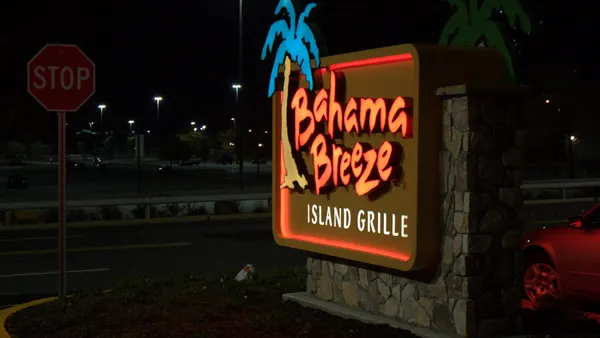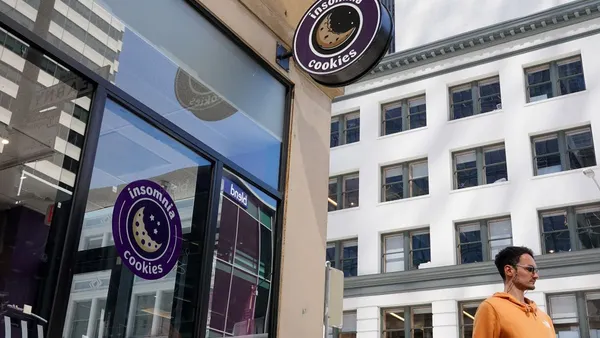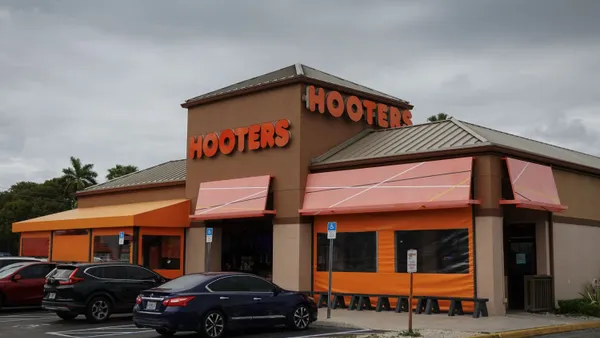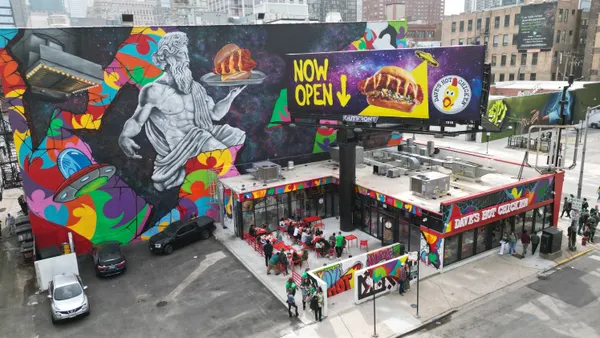Dive Brief:
- CPG companies continued to pursue M&A to expand their portfolios and attract new customers, but moved at a slower rate than both the previous three months and this time in 2017, according to the PricewaterhouseCoopers’ Q3 U.S. Consumer Markets Deal Insights Report released Thursday. Total deal value reached $35.8 billion in Q3, half as much as the three months before.
- The report identified the trend of legacy companies buying small brands in an effort to diversify their portfolios to meet rapidly changing consumer demands. There was only one "megadeal" — Coca-Cola’s $5.1 billion acquisition of the British multinational coffeehouse chain Costa Coffee. This transaction alone accounted for 14% of total deal value in the quarter.
- John D. Potter, U.S. consumer markets leader for PwC’s Deals Practice, said in the report that with an increasingly bumpy market and more competitive headwinds, "companies are ‘going small’ with smaller add-on brands aiming for more rapid growth and buying new capabilities via tech acquisitions, with some mega deals bringing bold moves."
Dive Insight:
The food and beverage sector accounted for nearly half of the largest M&A deals reported this quarter — the most active sector in Q3. Along with Coca-Cola's massive purchase of Costa Coffee, PepsiCo bought sparkling water machine manufacturer SodaStream for $3.2 billion. These two multi-billion dollar deals of global brands took legacy companies in new directions by pivoting away from sugary drinks to extend their reach, both geographically and with consumer preference — a trend expected to extend well past this quarter.
Coca-Cola's acquisition of Costa Coffee highlighted how companies are willing to spend a lot to expand their portfolios in fast growing categories, the report said. As coffee's popularity has grown globally, more companies have sought out investments in the segment — including Coca-Cola's Costa purchase and Nestlé's purchase of Starbucks’ retail products for $7.15 billion in May. Coffee will likely continue to be a hot M&A sector as consumers continue to look to fill their caffeine fix.
While the coffee market grows, Pepsi's large acquisition of SodaStream highlights how the beverage giant is shedding its dependence on sugary drinks. Both Coca-Cola and Pepsi — along with a slew of other big brand names — have been acquiring brands known for healthier products. Companies will likely keep investing in healthier products and divest brands that are losing popularity with consumers, especially as surveys have shown that new generations don't have as much loyalty to legacy food and beverage brands.
Overall, there were four food and beverage deals and one grocery deal in the top 10 this quarter. In addition to Coca-Cola’s and Pepsi’s big buys, Tyson Foods’ acquisition of Keystone Foods for $2.16 billion and U.S. Foods Holding Corp.’s purchase of five food distributors from Food Services of America Inc. for $1.8 billion also made the top deals list.
Grocery’s top deal was United Natural Foods acquisition of SuperValu for $3.2 billion. According to the report, it was the largest domestic deal this quarter and is expected to scale up United Natural Foods’ operation as a national food wholesaler. In a grocery industry with a lot of disruption, the recently completed UNFI and Supervalu deal could help better serve retailers in the grocery industry.
Another deal in the top 10 worth noting is Constellation Brand buying a 32% stake in cannabis company Canopy Growth for $3.9 billion. Food and drinks made with cannabinoids might still have many obstacles to overcome before becoming mainstream, but companies will likely continue to get in the market with upcoming M&A. Diageo and Molson Coors have been rumored to be interested in dealmaking in this space as well.
Although the number of megadeals declined this quarter, there were more smaller transactions in the $1 billion to $5 billion range, which was driven by divestitures as companies have dropped some products from their portfolios. As more companies face mounting pressure from activist investors — such as Nestlé and Campbell Soup Company — divestment of older brands could continue.
The grocery industry has seen more of the small deals, partially because Amazon continues to push companies to integrate e-commerce and expand on delivery options, which has hit the grocery industry hard this year. Walmart recently mandated suppliers to use blockchain technology to improve food traceability. Food manufacturers that supply Walmart will need to comply by 2019, and the report said that will likely increase M&A activity in the blockchain space.
Although big global beverage deals dominated this quarter, these smaller transactions could signify that in addition to more investments in coffee, healthier products and cannabis, the industry will likely continue to see more M&A with technology to help food and beverage companies navigate in the shifting e-commerce market.















